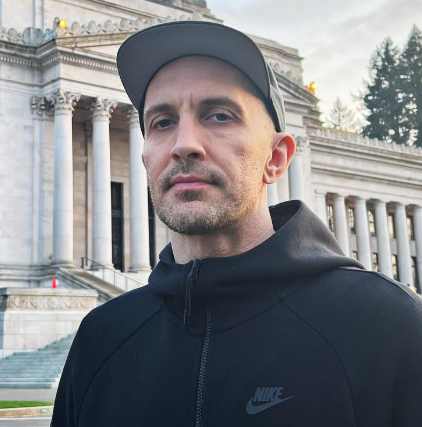Finn McKenty’s exit from YouTube has sparked both outrage and introspection within the music and content creation communities
His candid admission of financial motivations, while controversial, highlights broader challenges faced by creators navigating the tension between passion and profit.
As the dust settles, McKenty’s legacy will likely serve as a cautionary tale for aspiring influencers seeking to balance authenticity, engagement, and financial success.
Finn McKenty’s candid revelations on The Jesea Lee Show have sparked widespread discussion about authenticity, profitability, and the pressures of content creation.
As he navigates this transitional phase, McKenty’s story serves as a case study in balancing personal growth with public expectations.
Whether he succeeds in his new ventures or faces further backlash, one thing is certain: Finn McKenty’s journey is far from over.

Also Read: FaZe Banks Calls Out Double Standards in YouTuber Collaborations
Table of Contents
Finn McKenty: Controversial Exit from YouTube
Music content creator Finn McKenty, widely recognized for his influential YouTube channel The Punk Rock MBA, recently shocked fans and critics alike by announcing his departure from the platform.1
In a December 12 interview with metalcore TikTok influencer Jesea Lee, McKenty candidly revealed that his involvement in music content creation was driven purely by financial motives, stating that he had no genuine passion for the subject.
Facts https://t.co/VytDLjfeAx
— Finn McKenty (@thefinnmckenty) September 4, 2024
“I Was Just Doing It for the Money”
During the interview, McKenty shared his reasoning for stepping away from YouTube:
“I don’t have any plans to do anything on YouTube… I don’t really have any interest in music. I was just doing it for the money, and I hit my financial goals.”
This statement, while frank, has sparked widespread debate across social media platforms. McKenty elaborated further, emphasizing the value of personal fulfillment:
“Our time on this earth is limited. Like, don’t spend it doing sh*t you don’t have to do if you don’t want to, you know? It’s like I’ve made enough money. I don’t have to keep making videos about System of a Down.”
While some commended his honesty, others criticized the remarks as emblematic of a deeper disconnection from the music community he ostensibly served.

Finn McKenty: Backlash on Social Media
McKenty’s comments quickly went viral, with many expressing outrage over his self-proclaimed lack of interest in music.2
On X (formerly Twitter), users accused him of being a “grifter,” alleging that his career was built on disingenuous motivations.
Reactions from X Users
One user wrote:
“Finn McKenty announcing he is quitting YouTube, admitting he doesn’t like any of the music he would discuss, and was solely a grifter is truly the best news of 2024. Absolutely awful human.”
Another added:
“So, you’re telling me Finn McKenty, the dude with the background in marketing who constantly talks sh*t on bands and people who passionately enjoy music, the guy who got with his alt-right, anti-LGBT wife when she was only just 18, has been a grifter this whole time? I’m shocked.”
Others reflected on McKenty’s attitude toward music itself:
“IDK why the Finn McKenty thing is so shocking to people: dude let it be known multiple times that he basically hates musicians, thinks we’re losers, has nothing but contempt for music fans, etc. He literally said that learning to play an instrument is a waste of time.”
Some welcomed his departure, arguing that his exit was ultimately a positive development for the music community:
“Finn McKenty being gone is a good thing for music btw.”
While much of the backlash was critical, not everyone condemned McKenty. Some argued that his departure might reflect a broader evolution in his personal and professional priorities.

Support for McKenty’s Decision
One user offered a more charitable perspective:
“Honestly, I still think he cared about Punk/Metal at one point. He just got tired of talking about the same bands, and resentment grew between him and his audience. At this point, it’s probably a good thing he retired, and I wish him luck in his next endeavors.”
Others speculated on why he chose such a niche genre to begin with:
“If it was all about the money, why did he pick Rock & Metal and not a more lucrative genre like Rap or Country?”
Skepticism About His Authenticity
However, skepticism about McKenty’s authenticity persisted. A particularly biting comment highlighted the apparent irony in his branding:
“Was always hilarious to me that the guy has ‘MBA’ in his name, and so many people actually considered him legit and ‘from the scene.’ Dude happened to grow up near punk but was a fraud from the very beginning. Have to assume he’s about to get REAL right-winged.”

Finn McKenty: Passion Meets Profit
McKenty’s revelations and subsequent backlash have reignited a broader debate about the intersection of passion and profit in creative industries.3
His candid admission raises questions about the authenticity of influencers and the pressures of content creation in a digital-first world.
Platforms like YouTube have democratized access to audiences, enabling creators to build brands around niche interests.
However, the relentless pursuit of views and monetization often comes at a cost. Many creators face burnout or find themselves producing content that no longer aligns with their passions.
Authenticity vs. Financial Goals
For McKenty, his journey underscores a key tension: is it sustainable to create content solely for financial gain? His decision to leave YouTube suggests that, for him, the answer is no.
Yet, his critics argue that his approach—focusing on profit rather than genuine engagement with the music scene—was fundamentally flawed from the start.
Aspiring content creators can draw several lessons from McKenty’s experience:
- Define Your Motivations: Understanding why you create content—whether for passion, profit, or both—is crucial. Misaligned motivations can lead to dissatisfaction and disconnection from your audience.
- Prioritize Sustainability: Building a career in content creation requires balancing financial goals with personal fulfillment. Burnout is a common risk when creators prioritize one at the expense of the other.
- Engage Authentically: Audiences value authenticity. While it’s possible to succeed financially without genuine passion, such an approach may alienate your community over time.
What’s Next for Finn McKenty?
As McKenty steps away from YouTube, his future plans remain unclear. Some speculate that he may pivot to other ventures, leveraging his background in marketing. Others predict he might continue to stir controversy with new endeavors.
For fans of The Punk Rock MBA, McKenty’s departure marks the end of an era. While his comments have tarnished his reputation in the eyes of many, his influence on music discourse and digital content creation is undeniable.
Ultimately, McKenty’s story is a reminder of the complexities of modern content creation. As audiences, it’s worth reflecting on our expectations of influencers and the value we place on authenticity in an increasingly commercialized landscape.

Finn McKenty’s Shocking Revelation
Finn McKenty, known for his insightful YouTube commentary on punk, rock, and nu-metal music, recently stirred up a whirlwind of drama.
During his appearance on The Jesea Lee Show, McKenty candidly discussed his absence from YouTube, revealing that his interest in these music genres was not genuine.
Instead, he had been creating content purely to achieve financial goals. This revelation has left fans, critics, and industry insiders questioning his authenticity and future endeavors.
Finn McKenty built a significant following on YouTube, offering deep dives into niche music genres and cultural phenomena. However, his latest statements highlight a shift in his priorities.
McKenty shared that his current focus is on leveraging platforms like LinkedIn to help others and grow his business. “I’ve sort of considered maybe doing a channel about entrepreneurship, but I don’t know,” he admitted.
This shift indicates a broader interest in personal and professional development rather than staying tied to his music-related roots.
Breaking Ties with the Music Scene
One of the most surprising revelations from McKenty was his admission that he had never heard a song by System of a Down, a globally recognized band in the heavy metal scene.
This statement sparked outrage among fans who felt betrayed by his lack of genuine connection to the music he discussed so passionately on his channel.
The confession underscores McKenty’s strategic approach to content creation—one that prioritized marketability over personal passion.
McKenty’s decision to step back from YouTube wasn’t just about shifting his focus. He acknowledged that his move would invite criticism from online communities, particularly on Reddit and Twitter.
“I know people will tear me down,” he said, expressing concerns about the negativity he might face if he launched another YouTube channel. This highlights the challenges creators face in managing public perception and the toxicity of online discourse.

Finn McKenty: Fan Reactions
The fanbase’s response to McKenty’s revelations has been polarizing. While some feel betrayed by his lack of genuine interest in the music that brought him fame, others appreciate his honesty.
Supporters argue that McKenty’s transparency about his motivations is refreshing in an era where authenticity is often a marketing tool rather than a genuine trait.
McKenty’s admission raises broader questions about the ethics of creating content solely for financial gain.
Is it acceptable for creators to focus on profitability if their content still provides value to the audience? Or should passion and authenticity be prerequisites for credibility? These questions are at the heart of the discourse surrounding McKenty’s career shift.
Finn McKenty: Music Video
Finn McKenty’s brand new music video “Death 2 Real Metal” is now out on spotify and streaming on youtube.
View this post on Instagram
The Impact of McKenty’s Absence on YouTube
McKenty’s decision to step away from YouTube has left a void in the niche music commentary space. His unique analytical style and ability to break down complex topics into digestible insights were highly valued by his audience.
Without him, fans are left searching for other creators to fill the gap, and the genre’s representation on the platform might suffer.
McKenty’s concerns about online backlash highlight the power of platforms like Reddit and Twitter in shaping public narratives. These spaces often amplify criticism, creating echo chambers that can significantly impact creators’ mental health and professional decisions.
McKenty’s wariness reflects a broader trend among content creators to distance themselves from these platforms to avoid unnecessary stress.




